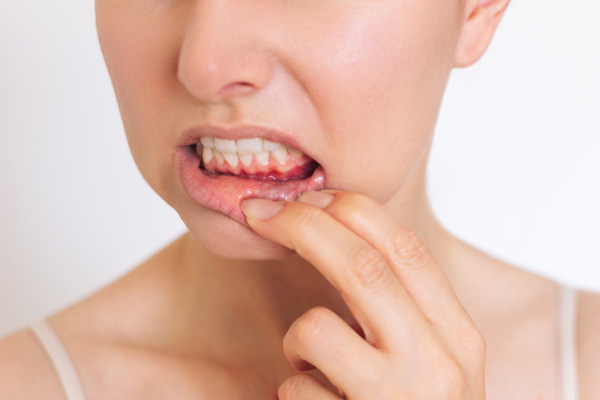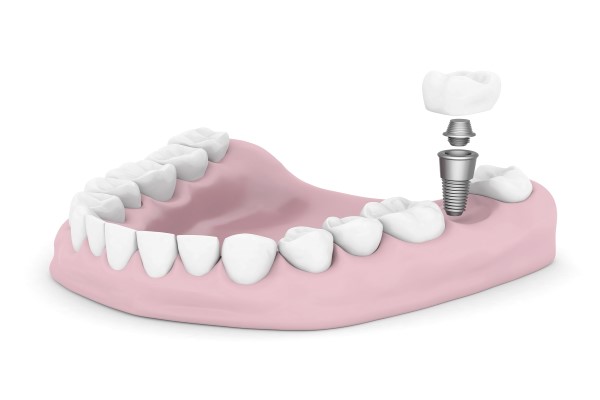Understanding Gum Recession: Causes and Risk Factors

Gum recession is a common dental problem where gum tissue pulls away from the teeth and can cause serious oral health problems if untreated. This condition can also affect the appearance of a person's smile, and cause tooth sensitivity and increased risk of cavities. To prevent gum recession and to act promptly, one needs to understand the causes and risk factors for this condition.
Causes and risk factors of gum recession
Gum recession is a loss of gum tissue around the teeth that causes the tooth roots to become exposed, leading to various dental problems. Often, this condition goes undetected until it becomes more serious.
Gum recession may cause increased sensitivity and the development of cavities under the gums as well as possible appearance concerns. Some of the causes include:
Periodontal diseases
Gum recession is often a result of periodontal disease. Patients may experience two types of gum inflammation: gingivitis (a moderate form) and periodontitis, which is a more severe disease that can even cause tooth loss. These conditions may be caused by bacterial infections that attack the gum and supporting bone structure. The periodontist will suggest scaling and root planing to initiate the healing process.
Aggressive tooth brushing
Patients can damage their gums with a hard bristle toothbrush or a vigorous brushing session. This excessive force can wear away the abrasive gum tissue and cause it to recede. It is advisable to stick to a soft-bristled toothbrush and go easy on the gums.
Poor oral hygiene
Poor oral care habits cause plaque to build up on a tooth. The hardening of plaque into tartar creates a rough surface for the growth of bacteria, causing recession and inflammation of the gums. Patients should visit the periodontist for routine cleaning and checkups, besides brushing and flossing twice daily.
Tobacco use
Smoking and tobacco use are detrimental to oral health. Individuals who use tobacco are at greater risk of dry mouth and hard plaque on teeth which is tough to remove. These effects contribute to gum diseases, which are the major cause of gum recession. Patients should talk to their periodontist about quitting smoking.
Genetic predisposition
Gum disease susceptibility may be genetic. Even if one practices good oral hygiene diligently, some individuals are more susceptible to gum problems. The general recommendation is to visit the dental office more often for checkups and cleaning.
Hormonal changes
Women may experience gum sensitivity and a high risk of gum recession because of hormonal changes during puberty, pregnancy, and menopause. Regular consultations with a periodontist and proper oral hygiene habits can reduce this risk.
Crooked or overcrowded teeth
Misaligned or crowded teeth can create gum pockets that trap plaque and cause gum recession. These conditions make cleaning the surfaces of the teeth harder. Patients may need to undergo orthodontic treatment to restore dental alignment.
In summary
Understanding the causes and factors of gum recession is necessary to prevent this common dental problem. Individuals can lower their risk of gum recession and maintain healthy gums by adopting healthy oral hygiene habits, lifestyle modifications and regularly visiting the periodontist. In case the gums begin to recede, early intervention by a periodontist can prevent it from worsening and maintain good oral health.
Request an appointment here: https://www.torreyhillsperio.com or call Torrey Hills Periodontal Group at (858) 925-1188 for an appointment in our San Diego office.
Check out what others are saying about our dental services on Yelp: I Think My Gums Are Receding in San Diego, CA.
Recent Posts
Concerned about gum recession? Read on to learn more. If your smile looks different in the mirror recently, you might want to see a periodontist. You may notice your tooth roots are showing more, your teeth seem longer, or your gums are receding. Perhaps your gums are becoming more tender and your teeth are more…
Periodontal disease is a result of severe bacterial infection in the gum tissue. It causes many problems in the mouth. Knowing the impact of gum infection on your oral health can motivate you to set an appointment with your dentist right away. Here are the details on how periodontal disease impacts your oral health.Research shows…
When we go to the dentist or periodontist, one of the last things that we expect to hear is that we need gum recession treatment. However, gum recession happens to many people for many reasons. When it does happen, it is important to get it treated properly as soon as possible to avoid further damage.…
Gum recession is often the result of a severe infection in the soft tissues of the oral cavity, but fortunately, a periodontist can treat the condition in a couple of different ways. While treatment may seem daunting, the condition will only worsen if left untreated. Keep reading to learn more about the available treatment options. The…


